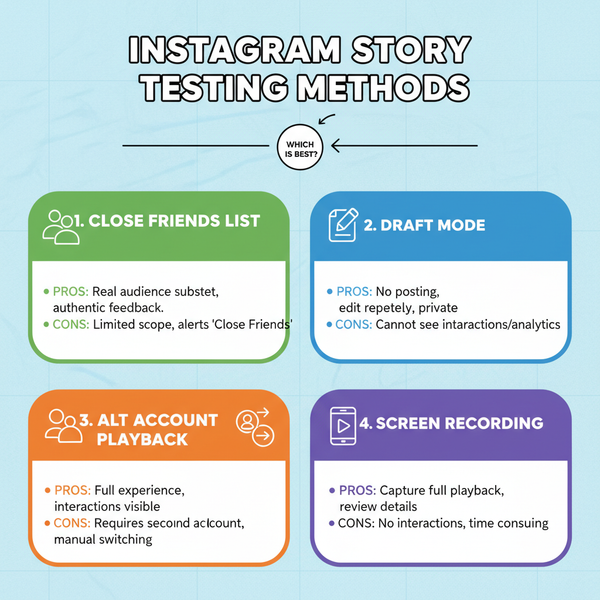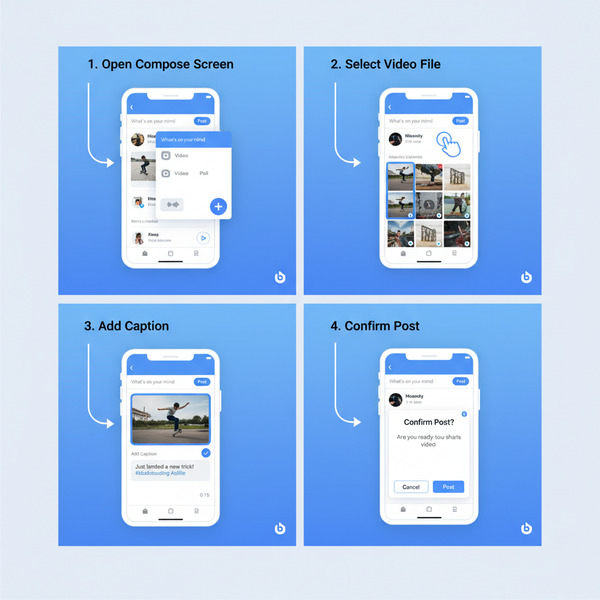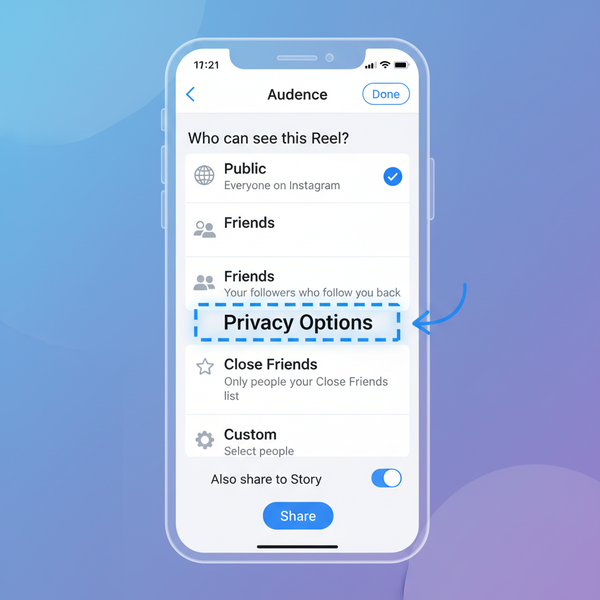How to Find When a YouTube Video Was Uploaded
Learn how to find a YouTube video's exact upload date and time using visible clues, metadata, developer tools, and the YouTube Data API.
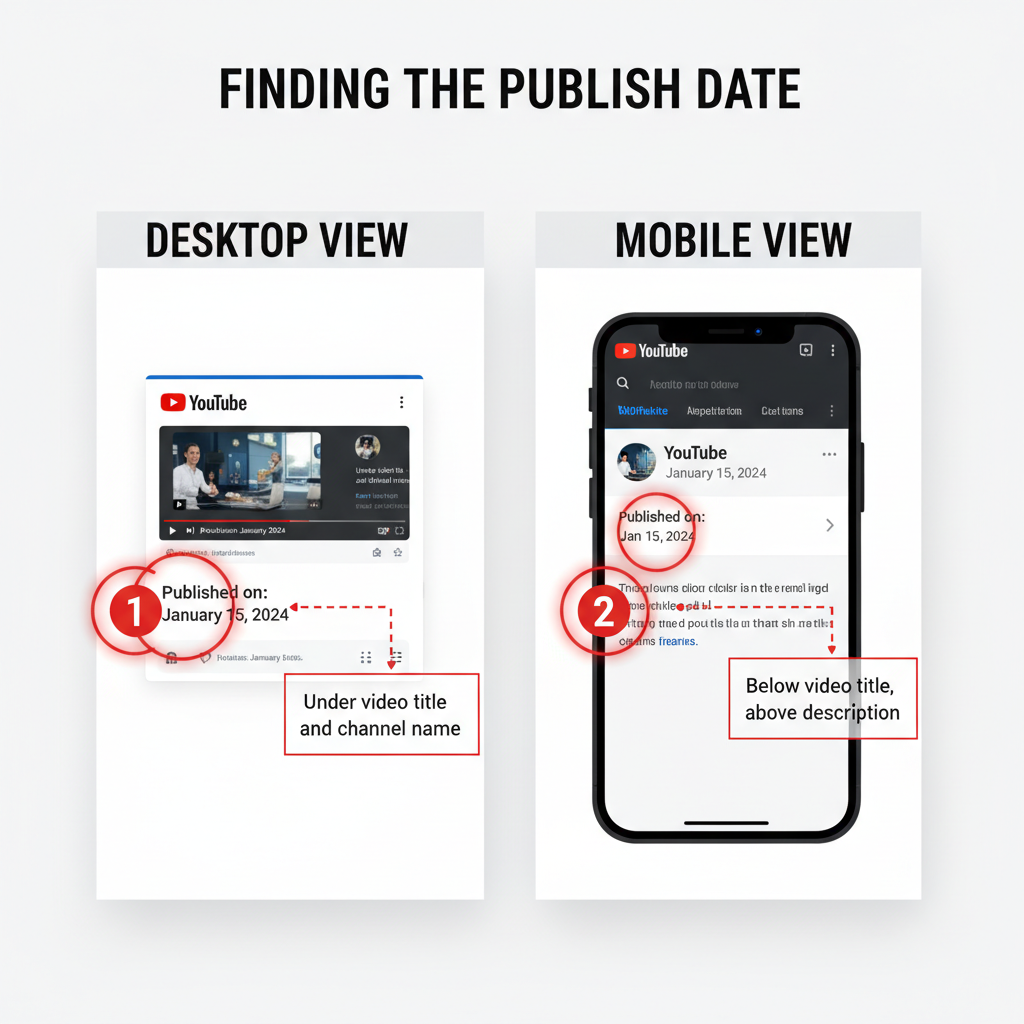
How to Find When a YouTube Video Was Uploaded
Accurately determining the original upload date and time of a YouTube video can be crucial for fact-checking, journalism, research, or legal documentation. While YouTube shows a visible published date below each video, this often lacks precision. This comprehensive guide explores multiple ways on how to know when a video was posted on YouTube, from simple on-screen clues to deep metadata inspection and archival tools.

---
Understanding YouTube’s Visible Date Display
Every YouTube video page displays a published date underneath the video title and channel name — typically in a format like `Nov 12, 2023`.
While this visible date works fine for casual viewing, key limitations include:
- It shows only the date, not the exact time or timezone.
- Older videos may display rounded formats like "X years ago" in certain interfaces (e.g., embedded players).
---
Checking the "Published on" Information: Desktop vs Mobile
Desktop View
On the desktop version of YouTube:
- Published on appears below the video title in the Description panel.
- Clicking “Show more” reveals the full textual date.
Mobile View
On smartphones or tablets:
- You may initially see just the month and year.
- Tapping the video description exposes the complete "Published on" date.
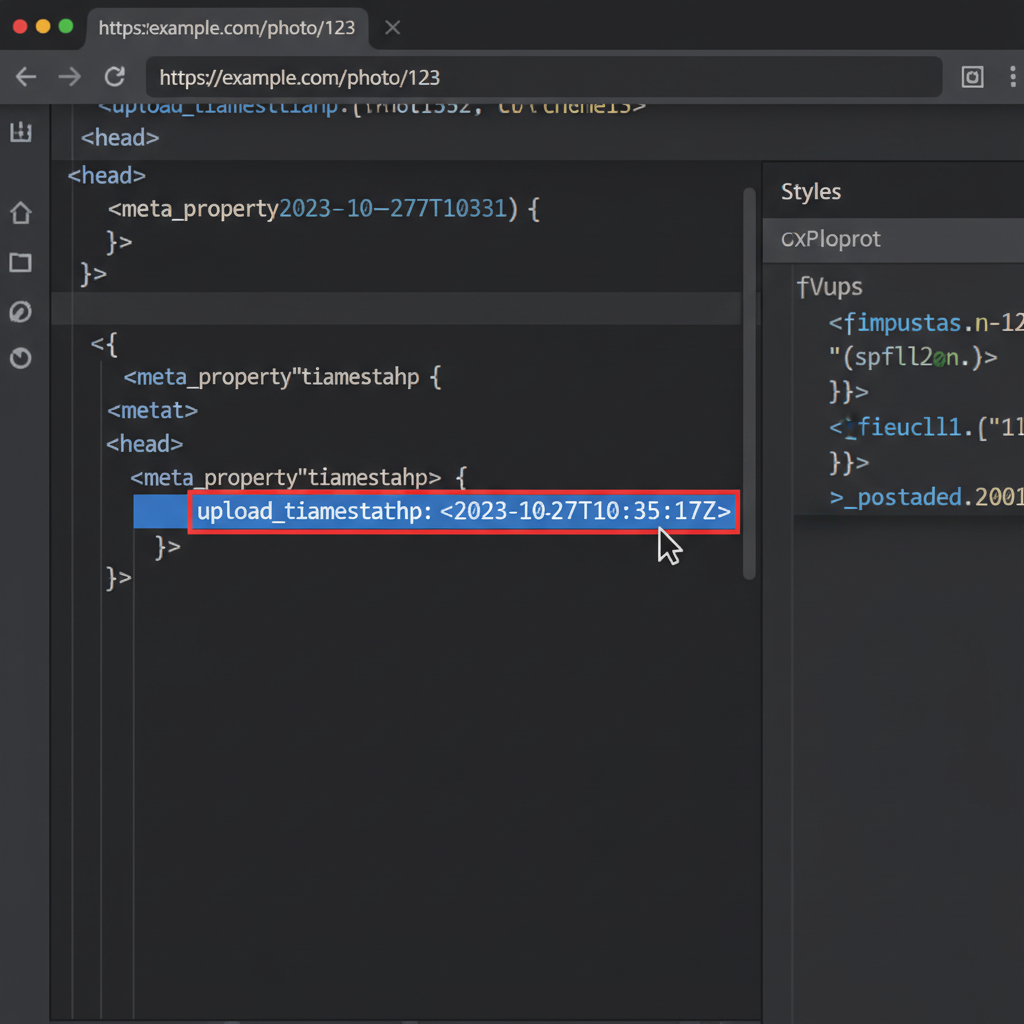
Tip: Cross-check both desktop and mobile displays if you suspect date truncation, especially for videos in ongoing live streams.
---
Using YouTube’s Video Page Metadata for Exact Timestamp
To get more precision than the on-screen published date, you can view the HTML source code.
Steps to view page source:
- Open the video in a desktop browser.
- Right-click the page and select "View Page Source".
- Use Ctrl+F (Windows) or Cmd+F (Mac) to search for `publishDate` or `uploadDate`.
Example HTML snippet:
Sometimes a timestamp in ISO 8601 format appears in embedded JSON:
"publishedAt":"2023-11-12T14:36:27Z"The `"Z"` indicates UTC.
---
Accessing Upload Date/Time via Browser Developer Tools
The browser’s Network tab can uncover even more detail:
- Hit F12 to open Developer Tools.
- Select the Network tab.
- Refresh the video page.
- Look for requests to `youtube.com/youtubei` or other API endpoints.
- Inspect JSON payloads for a `publishedAt` ISO timestamp.
Benefit: Potential to reveal time zone–specific data not in visible HTML.
Warning: YouTube’s data structure may change over time.
---
Checking YouTube API for `publishedAt` Field
YouTube’s Data API v3 allows programmatic retrieval of a video’s publish date and time.
Example API call:
GET https://www.googleapis.com/youtube/v3/videos
?part=snippet&id=VIDEO_ID
&key=YOUR_API_KEYResponse:
"snippet": {
"publishedAt": "2023-11-12T14:36:27Z",
...
}Requirements:
- A Google API key.
- Compliance with YouTube API quota and terms.
| Step | Description |
|---|---|
| 1 | Create a project in Google Cloud Console. |
| 2 | Enable YouTube Data API v3. |
| 3 | Generate an API key. |
| 4 | Make an API request with the video ID. |
---
Using Third-Party Tools and Extensions
Several browser add-ons and online utilities can auto-fetch upload timestamps:
- Chrome extensions overlaying metadata.
- Web services parsing YouTube’s API or HTML source.
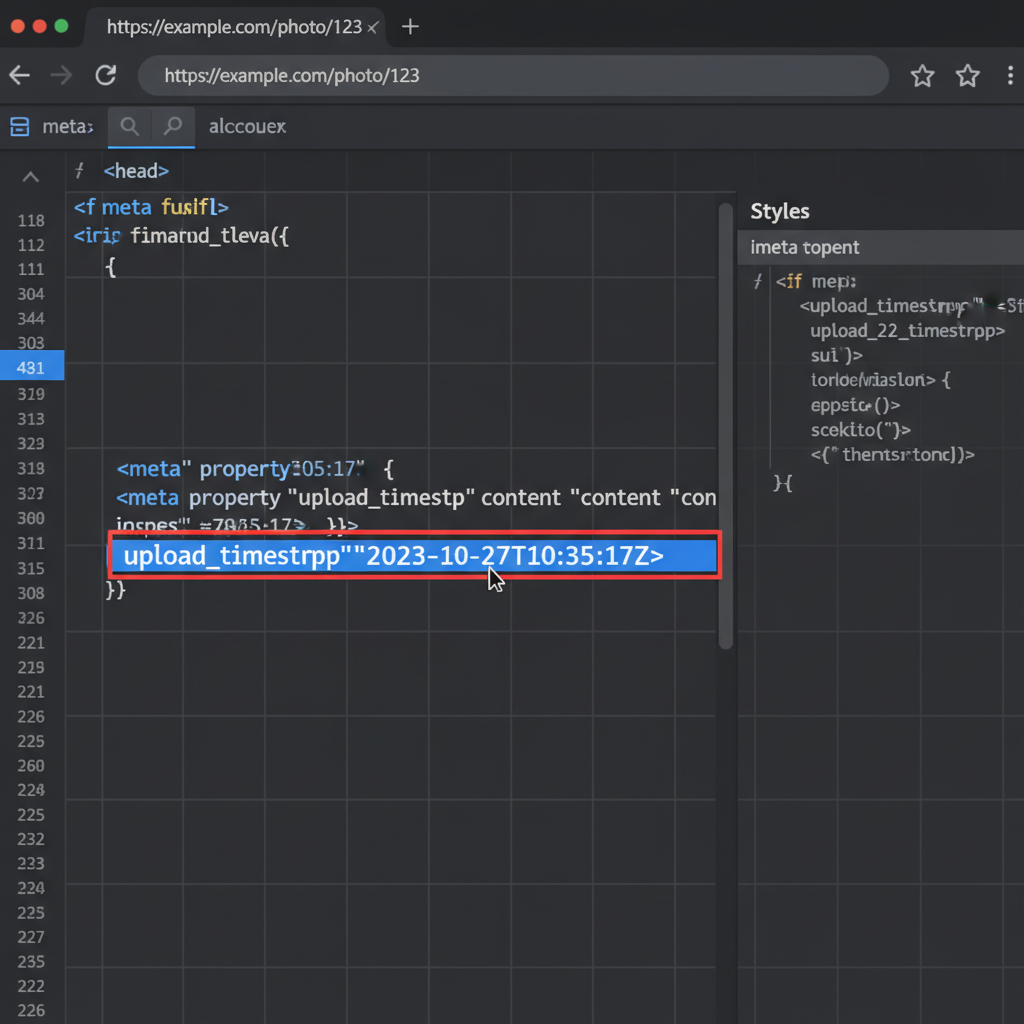
Caution: Use only trusted tools to avoid privacy or security risks.
---
Timezone Differences and UTC Conversion
The `publishedAt` field often uses UTC.
To convert UTC to local time:
- Find your time zone offset (e.g., UTC+5:30 for India).
- Use online converters or write a simple script.
Example in JavaScript:
const date = new Date("2023-11-12T14:36:27Z");
console.log(date.toString()); // Converted to local time zoneTip: Save UTC time alongside local conversions for legal clarity.
---
Comparing Metadata to Channel Activity and Playlist Adds
Some videos are uploaded earlier but published later.
Check:
- Channel Activity Feed.
- Playlist ‘Date Added’ entries.
This can identify backdating or rearranging of content chronology.
---
Identifying Reuploads vs Original Uploads
Creators may reupload for reasons like policy compliance or improved resolution. Signs of reuploading:
- Comments with dates earlier than the published date.
- Subject-date mismatches in video content.
- Discontinuities in channel chronology.
Advanced tip: Use the API to track the earliest search result or playlist appearance of a video ID.
---
Confirming Dates with the Internet Archive
The Wayback Machine can reveal when a video first appeared:
Steps:
- Copy the video’s full URL.
- Paste into Wayback Machine’s search.
- Review earliest archived snapshots.
Helpful if:
- Videos were deleted and reuploaded.
- You suspect backdating.
---
Tips for Researchers, Journalists, and Legal Investigations
If accuracy is paramount:
- Document your retrieval methodology.
- Save raw HTML, API responses, and any developer tool data.
- Store evidence in multiple formats.
- Be aware that metadata can change if the uploader edits it.
Best Practices
- Automate retrieval via API for consistency.
- Always note UTC times.
- Cross-verify through multiple methods.
---
Conclusion
Finding out exactly how to know when a video was posted on YouTube requires more than glancing at the displayed "Published on" date. With methodologies ranging from manual inspection to API queries and archival research, you can uncover precise upload information. These approaches help verify originality, detect reuploads, and ensure reliable evidence in professional contexts.
Whether you’re a researcher, archivist, or journalist, mastering these techniques equips you to authenticate video timelines with confidence. Start applying these strategies now to strengthen the credibility of your findings.

